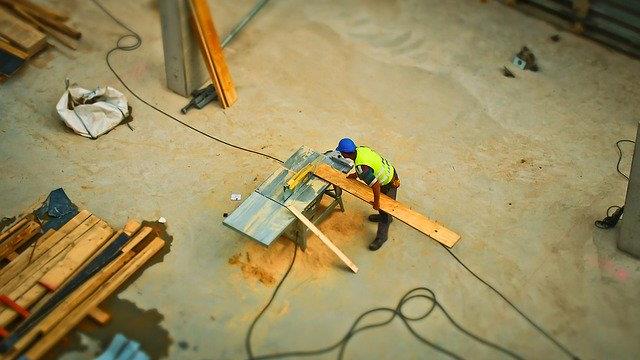Pandemic quickens construction job cuts

The Covid-19 pandemic is accelerating lay-offs amid a low-oil price environment, but some employers are seeking alternatives
Lay-off and redundancy activity has accelerated in the Middle East’s construction sector as it contends with the economic impact of Covid-19.
Job cuts were occurring in the regional industry even prior to the pandemic, largely due to a steady decline in contract awards at the start of the year.
Data by MEED Projects shows that UAE contract awards in the first quarter of 2020 marked the worst first-quarter performance in five years.
This downward trend is replicated in other parts of the GCC, with contract awards also declining during April.

As opportunities to win new work diminish and project pipelines shrink, regional construction employers are making redundancies to reduce costs.
Tendering opportunities appear to have particularly diminished for contractors, further lowering demand for skilled workers in the sector.
Employers are looking at different options than just redundancy. This might include interim pay deductions, shorter working weeks or taking annual leave at home
Several projects have been delayed or shelved due to lowered market liquidity amid global oil price volatility and Covid-19, but pre-construction activities are proceeding for a select few developments that are expected to be financially successful in the long term.
This trend has kept consultancies relatively busier than contractors during Covid-19.
However, MEED understands that several large consultancies, both local and international, have also made redundancies in recent weeks in the region.
Alternative savings
Industry experts say some construction employers are pursuing alternatives to reduce workforce costs.
Chris Cooper, founder of Dubai-headquartered Gigs Advisory, says the unprecedented impact of Covid-19 has meant decision-makers are having to adopt a different approach to the potential downturn.
He adds: “Employers are looking at different options than just redundancy. This might include interim pay deductions, shorter working weeks or taking annual leave at home.”
Maintaining a skilled workforce for expected future demand is crucial for employers hoping to recover more quickly during the post-pandemic period.
Marcus Taylor, CEO and founder of construction recruitment specialist FifthEdge, says priority projects will continue to create demand for engineers after Covid-19, particularly in Saudi Arabia.
He adds: “The bigger concern for me is skilled engineers that may be out of work now, and are unable to afford the cost of living, might decide to leave the region.”
This could be a likely option for employees that have seen first-hand the impact of the market downturn in 2009–10 and 2015–16.
Employers will want such experienced employees on the radar for new projects, but the skilled workforce may not be available in the region by the time contract awards return to previous levels, Taylor says.
“If employers don’t treat their employees right, they may not get another shot at hiring staff that they have invested so heavily in, and those that have the experience of working in the Middle East and on the size of projects here.”
Policy moves
Governments in the Middle East have launched programmes aimed at protecting private sector jobs.
This March, the UAE’s Ministry of Human Resources & Emiratisation (Mohre) issued a resolution covering expatriate employees whilst coronavirus-containment measures are in place.
Companies that have “a surplus” of expat workers with valid work permits must register the employees’ details in Mohre’s virtual labour market, which will allow other employers to hire them.
Employers that need expat workers must register in the virtual labour market platform, and apply to Mohre for employee transfer, and temporary or part-time work permits.
Article 5 of the resolution states that employers that want to temporarily reduce salaries during the period of precautionary prohibitions must attach a supplement to their existing employment contract. The employer and the employee must both agree to execute the temporary supplement.
Skilled engineers that may be out of work now, and are unable to afford the cost of living, might decide to leave the region
In Saudi Arabia, the Ministry of Labour & Social Development has permitted private sector companies to reduce working hours and cut employees’ wages during the next six months.
However, wages cannot be reduced by more than 40 per cent of the total salary, and employers are required to resume paying full wages after six months. Employees cannot object to the pay cut as long as it does not exceed 40 per cent.
Business owners may also approve their employees’ annual leave depending on work conditions, but employers cannot terminate employment contracts until the ministry-specified six-month period concludes.


